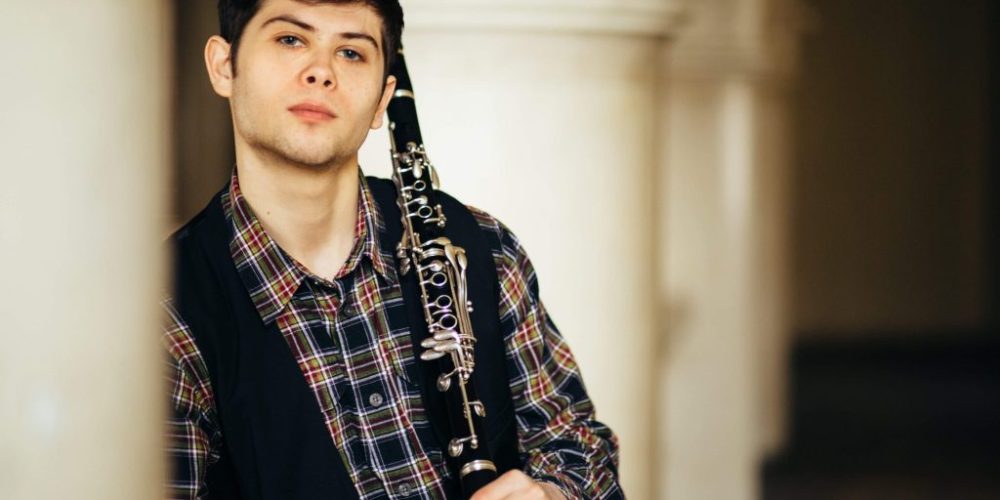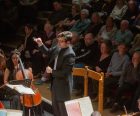Saturday 18th May 2024, 7.15pm
Scenes from the Humber, Anthony Hedges
Introduction, Theme and Variations, Gioacchino Rossini
Soloist: Dmytro Fonariuk
Night On Bare Mountain, Modeste Mussorgsky
Concertino in E flat, Carl Maria von Weber
Soloist: Dmytro Fonariuk
Symphony No.2 in B minor, Alexander Borodin
A musician of wide artistic tastes and talents, Anthony Hedges was initially educated at Bicester Grammar School. While there he became Organist of his local Methodist Church before heading to Oxford to study music. His abiding love of Yorkshire, including its dales and moors, developed during his years of National Service. He later moved to the East Riding which inspired a number of major works, not least the Scenes From The Humber which celebrated the Humber Bridge.
Gioacchino Rossini is well known for his operatic output yet retired from composing in his early forties to concentrate on his other great loves —eating and drinking. His Introduction, Theme and Variations was composed when he was just 18 years old as a student project at the Bologna Conservatory of Music. It remains one of the most popular virtuosic works for clarinet to this day. The IWSO welcomes the you Ukrainian clarinettist, Dmytro Fonariuk, to perform with us for the first time.
In 1860 Mussorgsky began writing an opera depicting the witches’ Sabbath. Progress was slow, not least because Mussorgsky was beginning to become more dependent on alcohol. Seven years later he produced an orchestral tone poem St. John’s Eve on a Bare Mountain which was in four parts. Sadly, Mussorgsky had no success in getting it performed. Five years after Mussorgsky’s death fellow composer Rimsky-Korsakov made a new version and, following it’s first performance in 1886, Night On Bare Mountain became a lasting success.
Weber’s Concertino for Clarinet in E flat major was written in just three days in the Spring of 1811. It is a one-movement work in the form of a theme and variations and within it Weber proves his compositional dexterity with a rhapsodic, almost improvised, flow to the music. The success of the concertino led to two further commissions for clarinet pieces.
Borodin began writing his Symphony No2 in B minor in 1869 and concentrated on it from 1870 through to 1873. During part of that time he was also busy at work on is opera Prince Igor and some of the material in the symphony began in sketches for the opera. Following the premiere in March 1877, Borodin thinned out his scoring and the work was re-introduced in 1879. It is thought that Borodin had a programme in mind for this symphony, the first movement depicting a gathering of Russian warriors, the third a bayan or mythic bard and the finale fourth a scene of heroes feasting. The work accordingly became known as the Bogatyrskaya (Heroic) Symphony, a nickname that has now slipped away.


